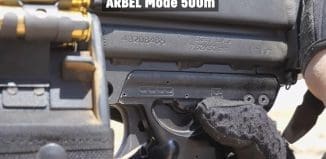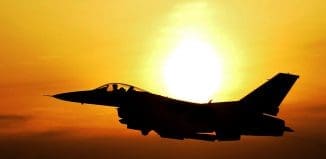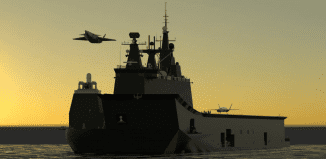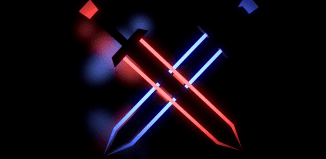Israeli Defense Industry Is Facing Even More Difficult Times
This post is also available in:  עברית (Hebrew)
עברית (Hebrew)
Arie Egozi
Global defense industries have long ago realized that only changing their course will keep them alive. The two best examples are the US and Europe, where small, medium and large industries were merged into giant groups with abilities and influence such as of countries.
Only in Israel this process failed to be realizes. The privatization of IAI is being dragged on for years. Each year promises its actualization for whoever still believes. IAI cannot operate globally the way it wants to as it is a government company will all the restrictions this implies. Even taking steps for re-organizing is impossible due to a workers committee which backed with some very strong governmental bodies.
Israel has three major defense industries that are owned by the government : Israeli Aerospace Industries (IAI), Rafael and Israel Military Industries (IMI), all of whom could be merged, at least in parts, or privatized, but instead everyone is fighting everyone, most of all the governmental industries with the public ones. Simultaneously there is a nother process, just as ominous. South Africa was once a large market for Israeli defense industries. With the white regime coming to an end, that connection was severed and today South Africas defense industry manufactures systems which are, in some cases, competing with Israeli ones.
But the most obvious case is Turkey. Up until the flotilla ordeal, Turkey was considered a bottomless pit for Israeli industries, who sold to Turkey its system in hundreds of millions of dollars, and with more potential still. The Indian market and the Turkish market provided plenty of work for many Israeli companies in many fields of defense.
But then came the breaking point in the relationship between the two countries, and on top of everything else, it has also damaged and will continue to damage the Israeli defense industries, not only because the Turks are no longer buying their products, but also because in many causes, they have decided to manufacture them on their own.
There were signs and clues to this decision, but in the past year it became apparent that this is not merely a local initiative of some commercial company, but an actual policy. We will not buy their products and we will compete with them as well, is basically the unuttered motto of the new Turkish policy.
Ankara has taken it upon itself to become a local power in every possible field. The Turkish aviation company Turkish Technic has established a subsidiary for maintenance and renovation of aircrafts to directly compete with IAIs Bedek Aviation Group and has started to aggressively market the exact areas operated by IAI. The Turkish company currently has 3,000 employees but has plans to increase the number in the coming years.
The company, which is rapidly increasing in activity, is also trying to sign cooperation agreements with manufacturers of aviation equipment and engines in the US, so as tu become an operation center for them. The wages are lower in Turkey than in Israel and so the Turkish company could become a substantial competitor to the Israeli one.
Bedek Aviation Group is one of the worlds leading centers for renovating aircrafts and remodeling them from passenger configuration to cargo. Today the region has no similar center to compete with Bedek, who in the past also received Turkish planes and has reconfigured one from a passenger plane to a cargo plane. Now, with relations escalating, Ankara has made the decision to establish the same operation in Turkey so has to avoid the need for Israeli companies assistance.
The Turkish company is also considering entering the field of aircrafts reconfiguration, which provided plenty of work for IAIs bedek. A source in the security services said in response that this step comes as no surprise: We have lost the Turkish market in every field, and it seems that the planes maintenance and reconfiguration field will see the Turks competing with us.
As mentioned, Turkish defense industries who, up to the flotilla ordeal cooperated extensively with Israels industries, are now trying to spread their wings with knowledge received from American companies with which they are signed on cooperation agreements, Not only have we lost Turkey as a big client, it has started competing with us in weapon systems as well, said the source.
Turkish industries, who once cooperated with Israel, are now trying to get information mainly from the US in order to develop military systems such as unmanned aircrafts and sell them. The Anka drone, for example, which was developed in Turkey will be exported to Egypt, among other countries.
Turkish industries are entering rapidly to any field held by the Israeli defense industries, with massive assistance by the government. Just as the US hasnt asked the Turkish government how it is possible that a NATO member can aid Hamas in Gaza and other terror organizations such as Hezbollah, there is no doubt that Washington will not bat an eye when it sees the increasing cooperation between American and Turkish companies, mainly in the field of security. While the government in Washington is sending signals of weakness, no legitimate questions is to be asked.
For Washington this is a trivial matter. Israel is very concerned while putting up a front of business as usual. This blow was not being prepared for.
In Israel, as always, there is no clear policy on defense import and export and in many cases in recent years, industries have lost huge deal over it.
Israel is still in a good spot in the world amongst exporters of defense systems but the competition is growing fast and without a change, Israel will lose its hard earned spot.





























